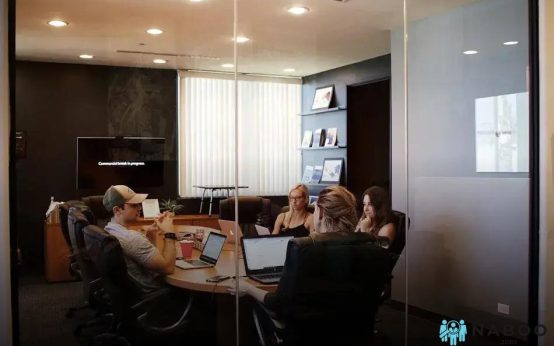Moving from corporate to startup life involves a significant cultural and professional shift. In the corporate world, you may have grown accustomed to structured environments and clear hierarchies. However, when you transition to startup mode, you need to adapt to a more flexible and uncertain atmosphere. This change can be both thrilling and challenging. Understanding the cultural shift and the startup mindset is crucial. Let’s explore how to overcome uncertainty and embrace the exciting growth opportunities in startup life.
Understanding the Cultural Shift
Moving from a corporate environment to a startup venture represents a significant cultural shift. In traditional corporate settings, structures are hierarchical and well-defined, providing a sense of predictability. However, in startups, the atmosphere is often agile and dynamic, requiring individuals to adjust quickly to new roles and responsibilities.
One of the most notable differences is the communication style. In corporations, formal channels and protocols dictate interactions. In startups, communication tends to be more casual and direct, fostering immediacy and innovation. This cultural shift can feel liberating but also requires adaptability to thrive.
Decision-making processes also differ greatly. While a corporation might rely on extensive approvals and documentation, startups often embrace speed and iteration. Decisions can be made swiftly, requiring employees to think on their feet.
Work-life balance expectations may also transform. Startups often appreciate flexibility, allowing for unusual working hours or remote work options. However, this flexibility comes with an expectation of dedication and availability, blurring the lines between personal and professional time.
Understanding these differences can help individuals navigate the transition, embracing the unique opportunities for growth and learning that the startup environment provides.
Adapting to a Flexible Environment
In a startup, the environment demands adaptability. Unlike the rigid structures in corporate settings, startups thrive on flexibility and change. Employees are expected to wear multiple hats, adjusting their roles as the company evolves. This dynamic setting means you must be ready to tackle various tasks beyond your initial job description.
Flexibility in Work Locations
Many startups allow for remote work or flexible hours, offering an opportunity to explore different productivity strategies that suit your lifestyle. Time management skills become crucial in ensuring tasks are completed effectively and deadlines are met.
Streamlined Decision-Making Process
Unlike the bureaucratic layers in a corporate environment, decision-making is often direct and immediate in startups. This may feel unsettling at first, but it presents a chance for your ideas to quickly turn into actions. Adapting to this fast-paced decision-making process can be both challenging and exhilarating, providing a profound sense of contribution to the company’s success. As you navigate this evolving landscape, it’s vital to be open to learning and to embrace the role ambiguity as a pursuit of growth.
Embracing the Startup Mindset
Transitioning from a corporate environment to a startup requires a shift in mindset. In a startup, things move faster, and roles tend to be more fluid compared to a typical corporate setting. Embracing the startup mindset involves being open to change and ready to take on multiple roles when needed. Startups often require employees to wear many hats, contributing to areas outside their initial expertise.
Another crucial aspect is the willingness to take calculated risks. Decisions may need to be made quickly with limited information, so it’s important to be comfortable working in an environment of uncertainty. Adapting to this dynamic pace can be challenging but is essential to thrive in a startup.
Focus on creativity and innovation. Startups rely on fresh ideas and unique solutions to drive growth and stay competitive. Encourage out-of-the-box thinking and don’t shy away from challenging the status quo. This approach helps startups bring new and effective solutions to market.
Finally, remember that learning and personal growth are part of the startup DNA. Mistakes are often seen as learning opportunities, so adopting a growth mindset will help in adapting to rapid changes and seizing new opportunities within the startup landscape.
Overcoming Uncertainty and Risk
Transitioning from a corporate environment to a startup can be daunting, primarily due to the accompanying uncertainty and risk. Unlike the predictable nature of a corporate job, startups offer a landscape filled with ambiguity and potential pitfalls. However, it’s essential to perceive these challenges as opportunities for growth. In a startup, the dynamic nature of daily operations requires you to be adaptable and ready to implement solutions swiftly. This environment demands continuous learning and resilience. Risk-taking becomes part of your daily routine, compelling you to develop a more flexible and proactive approach to problem-solving.
One of the critical steps in managing risk in a startup is embracing failure as a stepping stone rather than a setback. Fail fast, learn faster is a mantra that encapsulates the essence of thriving under uncertainty. By approaching tasks with an open mind and a willingness to experiment, you cultivate a culture of innovation that is integral to startup success. Additionally, it’s vital to establish a robust support system within your team. Collaborative environments breed creativity, mitigate individual risk, and foster a collective sense of achievement. Ultimately, overcoming uncertainty and risk is about continuously adapting your strategies and maintaining a forward-thinking mindset that embraces change as a positive force.
Seizing Growth and Learning Opportunities
Transitioning to a startup culture can open a world of growth and learning opportunities. Unlike structured corporate environments, startups offer unique chances to wear multiple hats and acquire diverse skills. Embracing roles that push your boundaries will naturally lead to continuous personal and professional development. One compelling aspect is the exposure to a wide range of business functions. You might find yourself dabbling in marketing one day and product development the next, broadening your understanding of how different departments collaborate to drive the company forward.
Startups tend to have flatter organizational structures, meaning fewer layers between you and top-level decisions. This direct involvement provides invaluable learning experiences and insight into strategic thinking. Also, startups are inherently innovative spaces due to their need to distinguish themselves in the market. This drive fosters a culture of constant learning, with team members encouraged to stay on the cutting edge of industry trends and technologies.
Networking with peers across various sectors is another significant growth opportunity. Startups frequently collaborate or share resources with other young companies, allowing team members to build expansive professional networks. These connections can lead to collaborative projects or new ventures down the line.
Moreover, learning frequently happens on-the-job, where real-world challenges require quick, effective problem solving. This kind of experiential learning is difficult to replicate in traditional corporate settings and often results in faster skill development. The iterative nature of startup projects allows team members to learn from both successes and failures, encouraging an attitude of resilience and adaptability.




